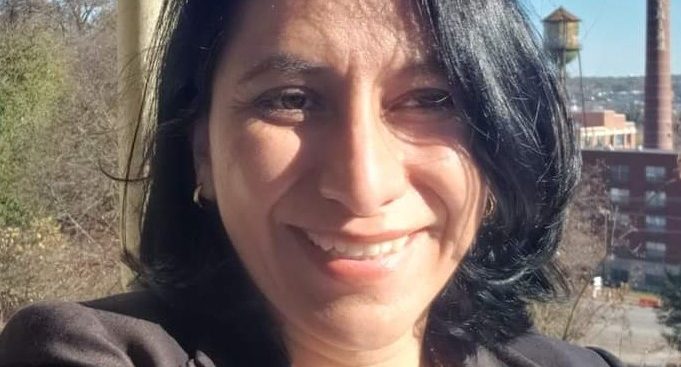April is Sexual Assault Awareness Month and we want to highlight a Latin@ organization making a difference in the lives of sexual assault survivors – Latinos in Virginia Empowerment Center. They created a toolkit to provide organizations with linguistically and culturally appropriate tools to reach the Latin@ community during Sexual Assault Awareness Month. In this conversation we speak with Senior Advocate, Elvira de la Cruz.
What brought you to the work of supporting survivors and sexual violence?
Before Latinos in Virginia Empowerment Center existed, Virginia didn’t have a program that focused on bilingual and bicultural sexual violence services to our Latino / Hispanic community. Victims often didn’t find the support they needed and sometimes it was more painful to deal with the system than to try to heal alone. We often saw that many victims were referred to service agencies that were not prepared to meet the needs of monolingual Spanish speakers and would end up calling our helpline again saying that they were not able to help them, that is was too complicated, or that the people who “spoke Spanish” there didn’t speak it very well so it was hard for them to understand. We even heard of several instances in which victims were told “you need to stop crying, because I can’t understand your Spanish when you cry”. At that time, we only had a helpline operated by volunteers, but upon witnessing these problems while knowing that with adequate help, a person could go from being a victim to a survivor, we decided to put all our strength and energy into creating what is now Latinos in Virginia Empowerment Center.
What do you currently do in your position to support survivors of sexual violence?
I am the Senior Advocate, and my job consists of providing and supervising the services we provide to victims of sexual violence. At the same time, I encourage more bilingual and bicultural people to become interested in working in this field, working with victims of violence in the Latino-Hispanic community. During 2020, the entire team (7 staff members and 25 volunteers) worked hard to improve our programs and provide more services to victims of violence and injustice in Virginia, with an emphasis on those who do not speak English. In January 2021 we launched Virginia’s first statewide 24-7 bilingual line for Spanish-speaking victims of violence. Most recently, in March 2021 we launched our Spanish-English Interpreter Bank, which provides free services by qualified interpreters for victims of violence in order for them to access services that help stabilize their lives after victimization.
How can we support loved ones who have been impacted by sexual violence?
I believe that the most important thing is to go with the flow and be flexible. I notice that culturally, Latinos/ Hispanics tend to want to know all the details of what happened: who, when, where, how. If victims are not ready to give all those details, even the ones who want help the most get frustrated and begin to doubt victims.
What advice would you give advocates working with Latin@ survivors of sexual violence during the pandemic?
My advice is to be content knowing that you did what was in your power to do. Maybe you did not solve the problem that that survivor was going through, but ask yourself: Did I call all of the places I thought could help them? Did I get in touch with my contacts to consider ways of helping them? Was I there to be an emotional support for the survivor when they needed me? If the answer is yes, you’ve done your job.
There is a lot of need and a lack of resources. While many things are outside of our control, what we do and give is within our control. During the pandemic, it took me a long time to get to a place where I could clock out and reconnect with my personal life. I kept thinking about the person who, in my head, I had not been able to fully help. I felt this way for a while until I learned to feel good knowing that I had given my best and that was all I could do.
How do you practice well-being and self-care?
I go out for a walk. I began doing this during the pandemic. When the weather allows, I put my headphones on and walk through the streets while I am in zoom meetings.
